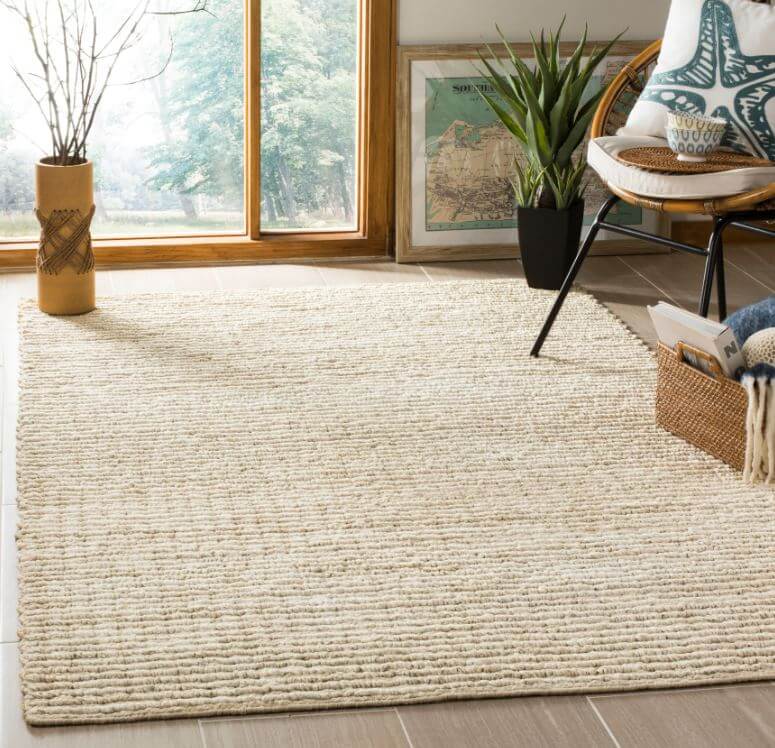Detailed FAQs about Jute Carpets
 Jute carpets are an eco-friendly and sustainable flooring option that have been gaining popularity in recent years. Here are some detailed FAQs about jute carpets:
Jute carpets are an eco-friendly and sustainable flooring option that have been gaining popularity in recent years. Here are some detailed FAQs about jute carpets:
What is jute?
Jute is a natural fiber derived from the stem of the jute plant, which is primarily grown in India and Bangladesh. The fiber is soft, strong, and durable, making it an excellent material for textiles and carpets.
What are the benefits of jute carpets?
Jute carpets have several benefits. Firstly, they are eco-friendly and sustainable, as jute is a renewable resource that requires minimal water and pesticide use. Secondly, jute carpets are soft and comfortable underfoot, making them a popular choice for bedrooms and living rooms. Thirdly, they have natural anti-static and sound-absorbing properties, making them ideal for high-traffic areas and rooms where noise reduction is important.
How are jute carpets made?
Jute carpets are made by weaving jute fibers together using a variety of techniques, including hand weaving, machine weaving, and tufting. Handwoven jute carpets are the most traditional and labor-intensive option, while machine-woven and tufted carpets are faster and more cost-effective to produce.
Are jute carpets durable?
Jute carpets are strong and durable, but they may not be the best choice for high-traffic areas or homes with pets and young children. Jute fibers can be damaged by moisture and prolonged exposure to sunlight, so it’s important to keep them dry and avoid placing them in direct sunlight.
How do you care for jute carpets?
Jute carpets should be vacuumed regularly to remove dirt and debris. Spills and stains should be blotted up immediately using a clean, damp cloth. Avoid using harsh chemicals or cleaning solutions on jute carpets, as they can damage the fibers. Instead, use a mild soap solution or a jute-specific carpet cleaner.
Are jute carpets hypoallergenic?
Jute carpets are a good option for people with allergies or asthma, as they do not trap dust, dander, or other allergens. However, they can harbor mold and mildew if they become damp, so it’s important to keep them dry.
Are jute carpets comfortable to walk on?
Jute carpets are soft and comfortable underfoot, but they may not be as plush or cushioned as other carpet materials, such as wool or nylon. Some people may prefer to use a rug pad underneath jute carpets for added comfort.
Can jute carpets be used outdoors?
Jute carpets are not recommended for outdoor use, as they are susceptible to moisture damage and fading from sunlight exposure.
How do jute carpets compare to other carpet materials?
Jute carpets are a more eco-friendly and sustainable option than synthetic materials like nylon or polyester. They are also softer and more comfortable than other natural fiber options like sisal or seagrass. However, they may not be as durable or stain-resistant as wool or synthetic carpets.
Are jute carpets expensive?
Jute carpets can be more expensive than synthetic options but are generally less expensive than high-end wool or silk carpets. The cost of a jute carpet will depend on factors like size, quality, and manufacturing process.
